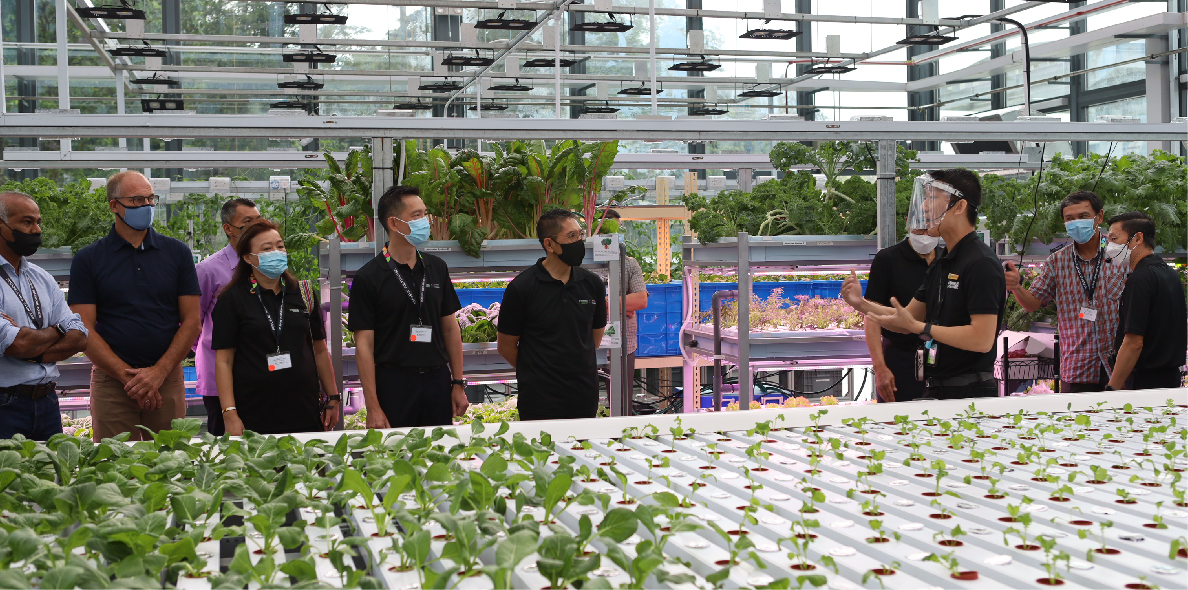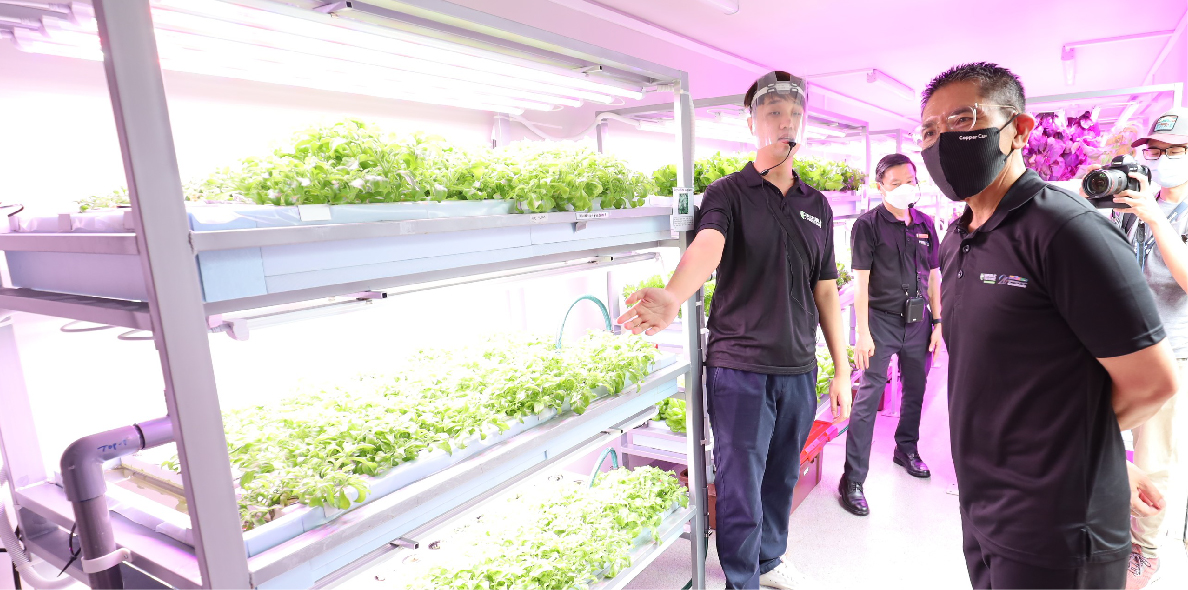“The Greenhouse” features different types of agricultural systems, and utilises sustainable building elements as well as data analytics to optimise plant growth
Republic Polytechnic (RP) today launched The Greenhouse, making it the first Institute of Higher Learning (IHL) in Singapore to feature a teaching and research facility dedicated to growing plants in naturally ventilated and climate-controlled conditions. The new purpose-built facility spanning 650m2 will provide first-hand real-world experiences in the training of over 700 Pre-Employment Training (PET) and Continuing Education and Training (CET) students annually, as part of their agriculture-related curriculum.
Dr Mohamad Maliki Bin Osman, Minister, Prime Minister's Office, Second Minister for Education and Foreign Affairs officiated the opening of the facility today.
Explaining the significance of this new facility, Mr Yeo Li Pheow, Principal/CEO, Republic Polytechnic said, “Developing self-sufficiency and a resilient food supply chain will help Singapore cushion against external food disruptions. In line with this vision, we are pleased to announce the launch of The Greenhouse, as we mark our 20th anniversary milestone this year. This facility will further deepen RP’s engagements and expertise in the agritech space and nurture a pipeline of industry-ready talent. This new facility will also serve to strengthen cross-industry collaborations and accelerate the development of new technologies for the sector.”
The facility consists of a core building comprising a naturally-ventilated greenhouse, a climate-controlled glasshouse and two storeys of laboratories within containers which allow for the precise control of the growing microclimates. It also houses different types of agricultural systems, together with remote and smart monitoring systems for the collection of critical physiological and environmental data. In line with the nation’s sustainability drive, sustainable building elements such as the installation of integrated photovoltaics (BIPV) on the roof, and a water treatment system have been integrated into the construction of the facility. These elements help to reduce the environmental footprint of the facility.


Dr Maliki Osman toured The Greenhouse, which will support agricultural research and learning for students, staff, and industry partners alike
New facility features multiple advanced agricultural systems
The Greenhouse also features industry-standard cultivation systems, designed to accommodate the growth cycle of plants and facilitate the smooth supply of nutrients. For example, the Bato bucket system provides larger space for root growth while the growbag system supports the use of different substrates. Utilising the vertical space, multi-tier tray-based systems and the A-frame nutrient film technique systems enable the growth of more plants within a small physical area. Besides growing plants, the facility also adopts the principles of circular economy, where unconsumed plant parts can be upcycled through black soldier fly into fertiliser, along with plants and fishes in an integrated aquaponics system.
The facility’s advanced agricultural systems will support a range of student and staff research, consultancy and industry projects in the fields of agriculture and plant science. These projects include the optimisation of plant growth, plant genetics and the cultivating of superior crop varieties, Internet-of-Things (IoT) enabled and machine learning solutions for smart farming, as well as bio-based solutions for the prevention of plant diseases. It will also help bring together established industry partners, such as Sembcorp Industries and Ripe Fresh, to collectively drive the institution’s initiatives in urban agriculture, plant science as well as sustainable energy and water solutions.
Students will have the opportunity to acquire first-hand experience on farm operation, plant genetics, crop physiology and breeding principles that will help prepare them for a career in the agritech sector.
Interested in agri-tech research and courses?
Find out more at RP’s Agriculture Research and Innovation (AGRI) Centre.